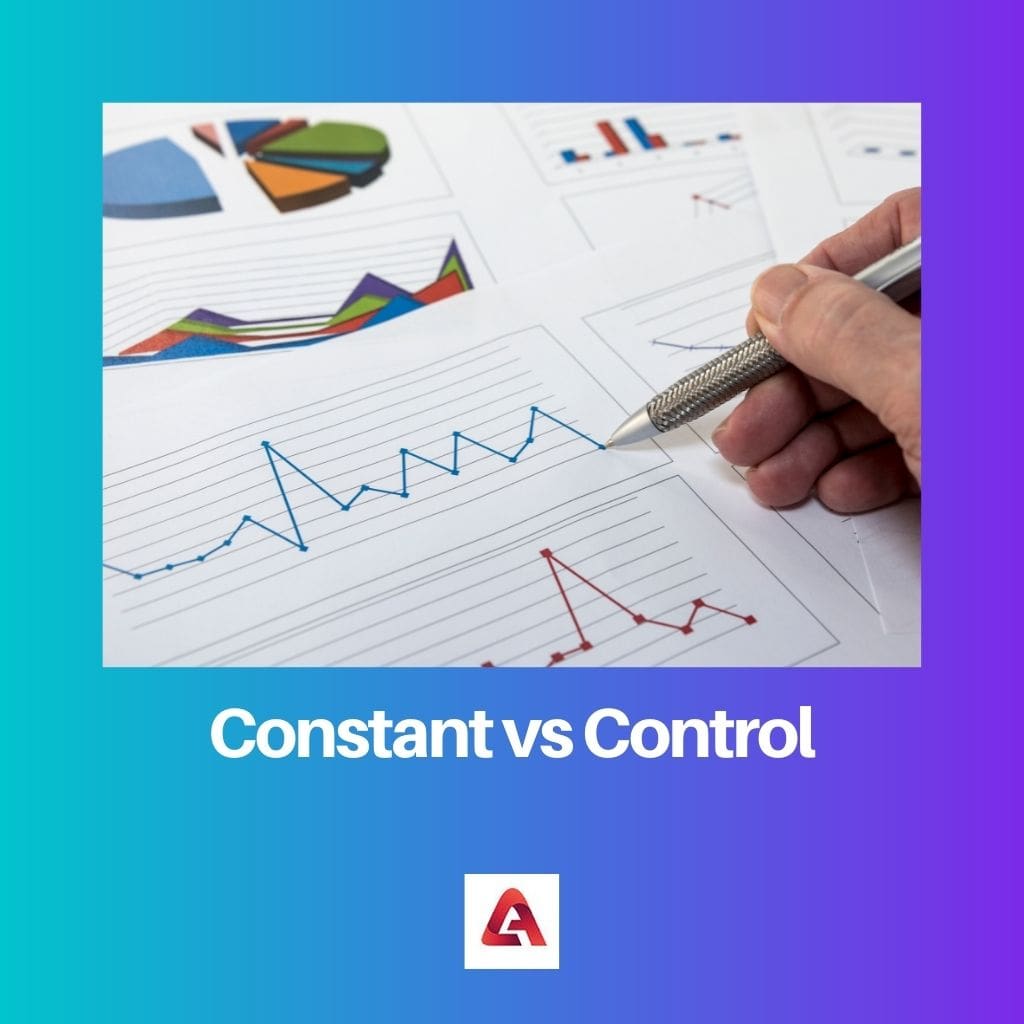Empirical studies and experimentation are some of the significant components of science, without which proper scientific knowledge cannot be acquired. To find out the cause of a particular phenomenon, various experiments must be conducted.
Experiments are all about observing, analysing and predicting changes. The elements that change in an experiment are known as variables.
Key Takeaways
- A constant is a factor or variable in an experiment or study that remains unchanged throughout the process, ensuring that changes observed in the outcome can be attributed to the manipulated variable.
- A control is a group or condition in an experiment or study that serves as a baseline or reference point, allowing researchers to compare the effects of the manipulated variable on the experimental group.
- Both constants and controls are essential components of a well-designed scientific experiment, ensuring accurate and reliable results by minimizing confounding factors and allowing for clear comparisons.
Constant vs Control
A constant variable does not change, while a control variable changes. While the constant is the variable of primary interest, the control is not and its influence can be controlled or eliminated. Constant is the variable of primary interest, while control is not the variable of primary interest.

A Constant variable does not go through any change under any circumstances, neither between nor during experiments.
A Control variable, on the other hand, has the potential to change but is deliberately kept constant by the conductor of the experiment so that the interrelation between an independent variable and a dependent variable can be isolated.
Comparison Table
| Parameter of Comparison | Constant | Control |
|---|---|---|
| Used in | Scientific Experiments and Algebraic Expressions. | Scientific Experiments. |
| Value | Does not change in any situation. | It can change but is deliberately kept unchanged. |
| Significance | It is of primary interest. | Act as a third factor. |
| Graph | Not depicted on the graph. | It can be graphed to check that all other conditions except those concerning the experiment are unchanged. |
| Purpose | Must be recorded for the reproduction of the experiment. | It helps show the interrelation between an independent and dependent variable. |
What is Constant?
It is a variable in an experiment, the value of which, once assigned, can be changed, neither during nor between experiments. However, as the value of a constant does not change, it is not considered a variable at all.
In an experiment, various natural properties or forces are taken as constants. For example, to observe the changes a plant undergoes due to the effects of different kinds of light, one needs to consider factors like soil quality and watering, etc., as constants.
However, in some instances, a particular factor, force or property is taken as constant merely for the sake of an experiment. If observed in real life, such factors, forces or properties can undergo considerable changes due to the influence of certain external factors or under certain circumstances.
In this context, one can take the example of the boiling point of water, which changes according to the acceleration and altitude of an area. This happens because of a decrease in gravity with a corresponding increase in distance from the earth.
In mathematical expressions, the term constant refers to a number that exists all by itself. This is because the value of such a number never changes. For example:
In expression 3x+4, the term ‘3x’ value varies with the value of x. But the value of the term 4 does not change.

What is Control?
It is a variable that has the potential to change but is deliberately kept constant so that it becomes easier to depict the interrelation between independent and dependent variables. For example:
In an experiment for observing and analysing the effects of different forms of light on the growth of a plant, one needs to keep the temperature the same for all the plants used in the experiment. This is because the focus is on how a plant reacts to different forms of light and not how it reacts to different temperatures.
Similarly, the person experimenting also needs to be careful with how much water he gives each plant. This is because if, by any chance, one of the plants is given more water than the other plants, it would not be possible to comprehend the reason behind the growth of that plant.
In a science experiment, a control variable is not important. Rather it acts a third factor. But it is still important for an experiment.
While graphing an experiment, the independent variable is represented by the x-axis, while the y-axis represents the dependent variable. But the controlled variables are not depicted on a graph as they are not supposed to change.
For example; after plotting the growth of plants compared to the lights received on a graph, one can also check if all the plants received the same amount of temperature or water. If any variation is found, one needs to re-check the set up of their experiment.

Main Differences Between Constant and Control
- Both Constant and Control are important for a scientific experiment. But the constant variable is of primary importance to an experiment. While, the control variable constitutes the third factor of an experiment.
- The value of constant does not vary in any situation. While the value of control has the potential to change.
- While plotting the graph of an experiment, the constant variable is not depicted on the graph. However, a control variable can be graphed for verifying the fact that all other conditions except the independent and dependent variables are the same.
- While experimenting, the constant must be recorded so that the experiment can be reproduced. Whereas, a control variable is used for a clear depiction of the correlation between the dependent and independent variables.
- A control variable is only used in scientific experiments. Whereas a constant is also used in mathematical or algebraic expressions.
This article was really informative and it provided a clear and detailed explanation of constants and controls in scientific experiments. I loved the comparison table!
I found the examples provided to be very helpful in understanding the concept of constant and control variables. Great article!
I agree, it was very informative. The comparison table was a great way to understand the differences between constant and control variables.
The explanation of constant and control variables was meticulous and well thought out, and I appreciated the attention to detail.
I agree, the article was very detailed and provided a holistic understanding of constant and control variables in scientific experiments.
The comparison table was a fantastic addition to the article, and I feel like I have a much better understanding of constants and controls now. Thank you!
I completely agree. The comparisons made the information easy to grasp and remember.
The article was spot-on in explaining the differences between constants and controls, and I found it to be very educational.
I think the article was astutely written and provided a deep dive into the concepts of constants and controls in scientific experiments.
I completely agree. The article delved into the intricacies of constants and controls and provided a comprehensive perspective.
The article was well-researched and presented, and I feel like it enhanced my understanding of constants and controls.
The article provided an insightful comparison between constant and control variables, and I appreciated the real-life examples given to explain the concepts.
I was thoroughly impressed by the detailed explanation of constants and controls. It was very well-presented.
I found the information about constants and controls to be very enlightening and applicable to various experiments. Great read!
The examples provided were really helpful and I think this article will be beneficial to anyone looking to understand constant and control variables in experiments.
The article was excellent, and the examples provided a practical understanding of constant and control variables.
I couldn’t agree more. The real-life examples made it easier to comprehend the concepts.
The article was comprehensive and informative, and I think it did a great job of elucidating the concepts of constant and control variables.
I found the article to be enlightening and well-researched. It provided a thorough understanding of constants and controls.
I think the article was clear and concise, and did a great job of explaining the significance of constants and controls in scientific experiments. Well done!
I couldn’t agree more. The article was well-written and provided a thorough understanding of constant and control variables.
The article was very well-written and provided a systematic breakdown of constant and control variables, which was incredibly beneficial.
The systematic explanation of constant and control variables was impressive and easy to comprehend. The article was a worthwhile read.
The comparisons and real-life examples really made the concepts of constant and control variables crystal clear. I thoroughly enjoyed reading this article.
I agree, the real-life examples were very insightful and contributed to a better understanding of the topic.